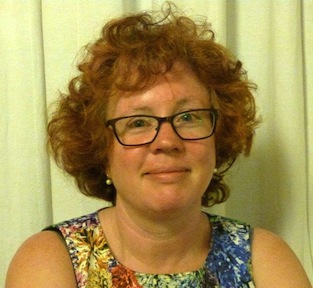Studying at the University of Verona
Here you can find information on the organisational aspects of the Programme, lecture timetables, learning activities and useful contact details for your time at the University, from enrolment to graduation.
Academic calendar
The academic calendar shows the deadlines and scheduled events that are relevant to students, teaching and technical-administrative staff of the University. Public holidays and University closures are also indicated. The academic year normally begins on 1 October each year and ends on 30 September of the following year.
Course calendar
The Academic Calendar sets out the degree programme lecture and exam timetables, as well as the relevant university closure dates..
| Period | From | To |
|---|---|---|
| I semestre | Oct 1, 2013 | Jan 11, 2014 |
| II semestre | Feb 24, 2014 | May 31, 2014 |
| Session | From | To |
|---|---|---|
| Lingue - sessione invernale | Jan 13, 2014 | Feb 22, 2014 |
| Lingue - sessione estiva | Jun 3, 2014 | Jul 26, 2014 |
| lingue - sessione autunnale | Sep 1, 2014 | Sep 29, 2014 |
| Session | From | To |
|---|---|---|
| tesi laurea | Mar 31, 2014 | Apr 2, 2014 |
| tesi laurea | Jul 9, 2014 | Jul 11, 2014 |
| Period | From | To |
|---|---|---|
| VACANZE PASQUALI | Apr 17, 2014 | Apr 22, 2014 |
| Festa della Liberazione | Apr 25, 2014 | Apr 25, 2014 |
| Festa dei lavoratori | May 1, 2014 | May 1, 2014 |
| Festa del S. Patrono S. Zeno | May 21, 2014 | May 21, 2014 |
| Festa della Repubblica | Jun 2, 2014 | Jun 2, 2014 |
Exam calendar
Exam dates and rounds are managed by the relevant Foreign Languages and Literatures Teaching and Student Services Unit.
To view all the exam sessions available, please use the Exam dashboard on ESSE3.
If you forgot your login details or have problems logging in, please contact the relevant IT HelpDesk, or check the login details recovery web page.
Should you have any doubts or questions, please check the Enrollment FAQs
Academic staff
 birgit.alber@univr.it
birgit.alber@univr.it
 lidia.carolgerones@univr.it
lidia.carolgerones@univr.it
 daniela.carpi@univr.it
daniela.carpi@univr.it

Degani Marta
 marta.degani@univr.it
marta.degani@univr.it
 +39 045802 8259
+39 045802 8259
 cinzia.delotto@univr.it
cinzia.delotto@univr.it
 cecilia.grana@univr.it
cecilia.grana@univr.it

Locher Elmar
 elmar.locher@univr.it
elmar.locher@univr.it
 +39 045802 8311
+39 045802 8311
 silvia.monti@univr.it
silvia.monti@univr.it
 sara.paolini@univr.it
sara.paolini@univr.it
 alberto.scandola@univr.it
alberto.scandola@univr.it
Study Plan
The Study Plan includes all modules, teaching and learning activities that each student will need to undertake during their time at the University.
Please select your Study Plan based on your enrollment year.
1° Year
| Modules | Credits | TAF | SSD |
|---|
2° Year activated in the A.Y. 2014/2015
| Modules | Credits | TAF | SSD |
|---|
Literature of English-speaking Countries
3° Year activated in the A.Y. 2015/2016
| Modules | Credits | TAF | SSD |
|---|
| Modules | Credits | TAF | SSD |
|---|
| Modules | Credits | TAF | SSD |
|---|
Literature of English-speaking Countries
| Modules | Credits | TAF | SSD |
|---|
| Modules | Credits | TAF | SSD |
|---|
Legend | Type of training activity (TTA)
TAF (Type of Educational Activity) All courses and activities are classified into different types of educational activities, indicated by a letter.
Literature of English-speaking Countries [1^ LINGUA] (2014/2015)
Teaching code
4S00866
Teacher
Coordinator
Credits
6
Language
English
Scientific Disciplinary Sector (SSD)
L-LIN/10 - ENGLISH LITERATURE
Period
I semestre dal Oct 1, 2014 al Jan 10, 2015.
Learning outcomes
The course is addressed to second-year students of LLS and aims at offering a general introduction to the main themes and theoretical questions pertaining to the discipline through a critical and close reading of texts drawn from colonial and postcolonial literature and deemed to be particularly representative of the topics duscussed during classes.
The course will be taught in English.
Program
Colonial and Postcolonial Gothic_ After introducing the main, historical and theoretical, assumptions of the discipline, the course will explore the ways in which the gothic has been used to give narrative voice to the anxieties and horror of the colonial and postcolonial experience. This will be done through an in-depth analysis of representative texts and in such a way as to have the students synergically interact with the didactic work they will be involved in for the course of English Literature II.
Bibliografia
Primary sources
-KIPLING, R., “The Man who would be King” (1888) , racconto
-CONRAD, J., Heart of Darkness (1902)
-RHYS, J., Wide Sargasso Sea (1966)
-COTZEE, J.M., Waiting for the Barbarians (1980)
Secondary sources
-WATT, J., “Conrad’s Heart of Darkness and the Critics” (Ch.4), in ID, Essays on Conrad (2000)
-PLASA, C., “Qui è là?: Race and the Politics of of Fantasy” (ch. 4) in, ID, Textual Politics, Macmillan, 2000.
-HEAD, D., J.M. Coetzee, Cambridge UP, 1997, capitolo su Waiting for the Barbarians.
Bibliografia suppletiva obbligatoria per i non-frequentanti/additional and compulsory creatical readings for non-attending students:
-BOEHMER, E., Colonial and Postcolonial Literature. Migrant Metaphors (Introduzione, chs. 1,2,5)
-MOORE, J.M., Joseph Conrad’s Heart of Darkness: a casebook, 2004, chs. “Victorians and the Africans” (by P. Brantlinger),+ “Heart of Darkness Revisited: the African Response” (by R. Zhuwarara);
-Mc LEOD, J., “Re-reading and re-writing English Literature”, ch.V (on "Wide Sargasso Sea"), in Beginning Postcolonialism,Manchester UP, 2000
Examination Methods
oral and/or written assessment
Type D and Type F activities
To discover all the teaching activities accredited by the foreign teaching college click here
Career prospects
Module/Programme news
News for students
There you will find information, resources and services useful during your time at the University (Student’s exam record, your study plan on ESSE3, Distance Learning courses, university email account, office forms, administrative procedures, etc.). You can log into MyUnivr with your GIA login details: only in this way will you be able to receive notification of all the notices from your teachers and your secretariat via email and soon also via the Univr app.
Student login and resources
Gestione carriere
Assegnazione tutore
Attività accreditate D/F
Calendario didattico dettagliato
Cambio lingua curriculare
Competenze informatiche
Competenze linguistiche (prima e seconda lingua)
Competenze linguistiche in triennale (terza lingua CFU F)
Compilazione del piano didattico
Corso di Lingua portoghese
Erasmus+ e altre esperienze all'estero
Linguistic training CLA
Presentazione dei corsi di studio e Open day
Graduation
Saperi minimi
Stage e tirocini
Le attività di stage sono finalizzate a far acquisire allo studente una conoscenza diretta in settori di particolare interesse per l’inserimento nel mondo del lavoro e per l’acquisizione di abilità professionali specifiche.
Le attività di stage sono svolte sotto la diretta responsabilità di un singolo docente presso studi professionali, enti della pubblica amministrazione, aziende accreditate dall’Ateneo veronese.
I crediti maturati in seguito ad attività di stage saranno attribuiti secondo quanto disposto nel dettaglio dal “Regolamento d’Ateneo per il riconoscimento dei crediti maturati negli stage universitari” vigente.
- Tutte le informazioni in merito agli stage per futuri studenti sono disponibili alla pagina Stage e tirocini.
- Tutte le informazioni in merito agli stage per studenti iscritti sono pubblicate in MyUnivr - come fare per - stage e tirocini.
- Tutte le informazioni in merito agli stage per le aziende sono disponili alla pagina Stage e tirocini per azienze.
Ulteriori informazioni al seguente link https://www.univr.it/it/i-nostri-servizi/gestione-carriere-studenti-lingue-e-letterature-straniere/stage-e-tirocini-lingue-e-letterature-straniere










































